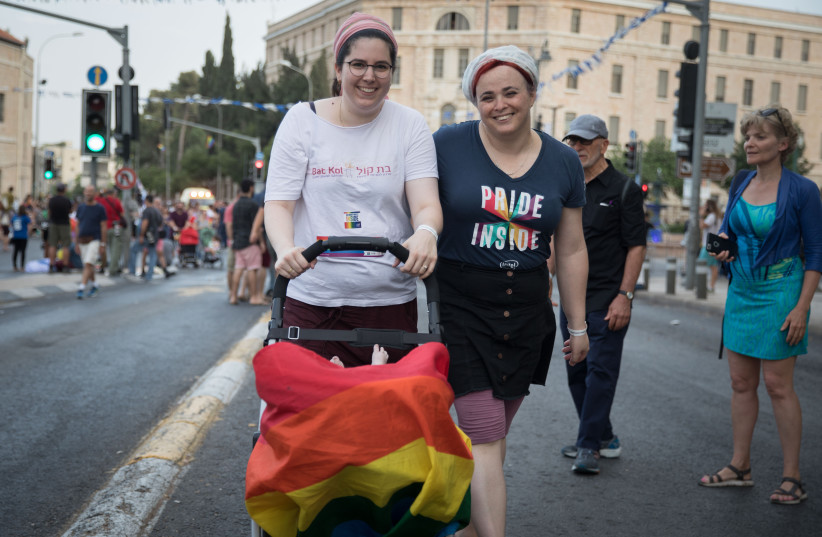Same-sex partners of fallen soldiers will now be recognized as IDF widows and widowers after the Families of Fallen Soldiers Law was amended on Monday.
Previously, the law defined an IDF widow specifically as a woman who had been married (legally or through common-law marriage) to a man who was killed in combat. Likewise, a widower was specifically designated as a man who had been married (legally or through common-law marriage) to a woman who had been killed in combat.
Common-law status gives them similar benefits and rights to the privileges that legally married couples benefit from.
The new amendment to the law now defines an IDF widow or widower as a person whose spouse or partner was killed in combat, and does not clarify genders.
In past years, defense ministers made the decision to recognize same-sex couples, as Yoav Gallant did in this war, but the new amendment takes the choice away and legally requires them to.

Change sparred by IDF reservist's tragic death on October 7
The need for the amendment was brought into the spotlight at the beginning of the Swords of Iron war, when reservist Sagi Golan was killed trying to rescue people from Kibbutz Be’eri, which was hit badly in Hamas’s attack on October 7.
Golan was only six days away from marrying his fiancé, Omer Ohana, and the law’s classification would not have recognized Ohana as a widower. He was also not allowed to mourn Golan as his partner, being told that he could not rip his shirt during the shiva mourning period, as spouses do when mourning each other.
Yesh Atid MK Meirav Ben-Ari spoke about Ohana and Golan at the Knesset on Monday when the amendment was voted on. Ohana attended the vote, and Ben-Ari spoke directly to him, telling him he had touched her heart and showed her that there was a lot to fix in this regard.
“It’s been a month without Sagi,” Ohana said on Tuesday. “It feels like it was only yesterday. Time doesn’t really pass, and the days mix together. I need to get used to learning about myself anew, but now there is a feeling of meaningfulness after what happened in the Knesset yesterday. There’s also a feeling of justice, which was one of the strongest things that led Sagi when he was alive.”
The Jerusalem Post and OneFamily are working together to help support the victims of the Hamas massacre and the soldiers of Israel who have been drafted to ensure that it never happens again.
